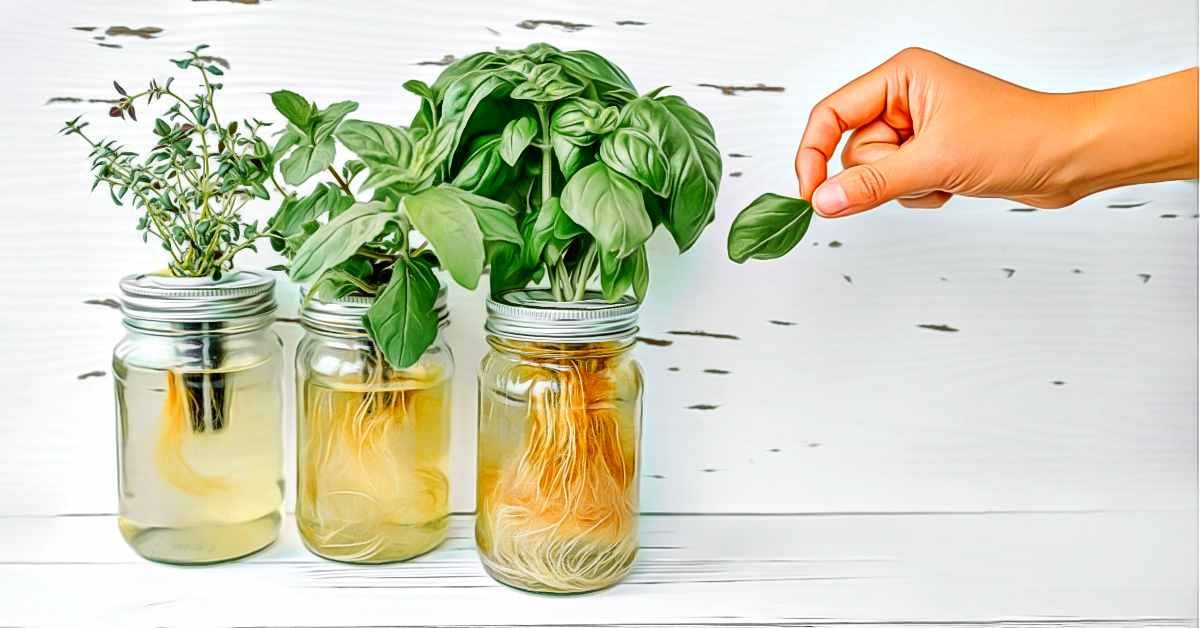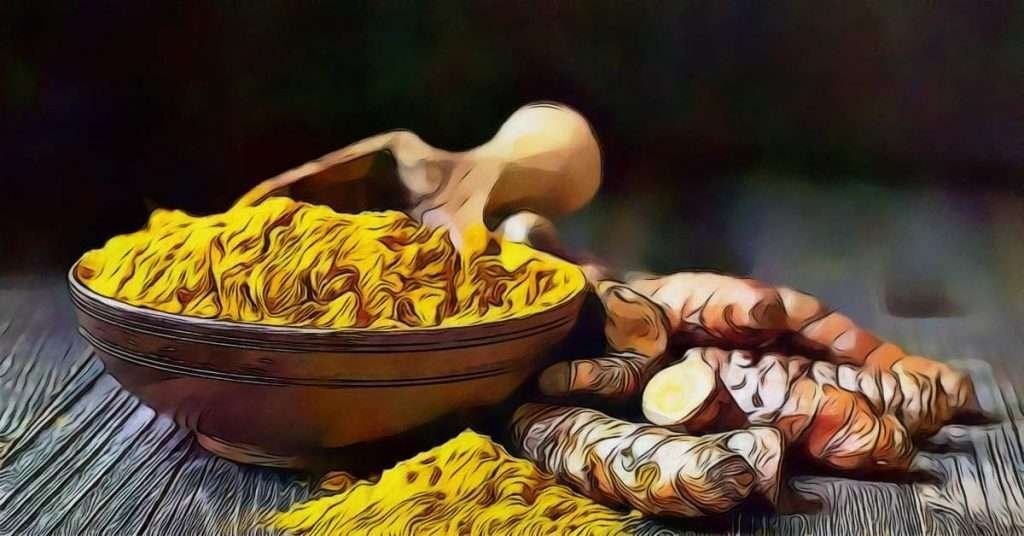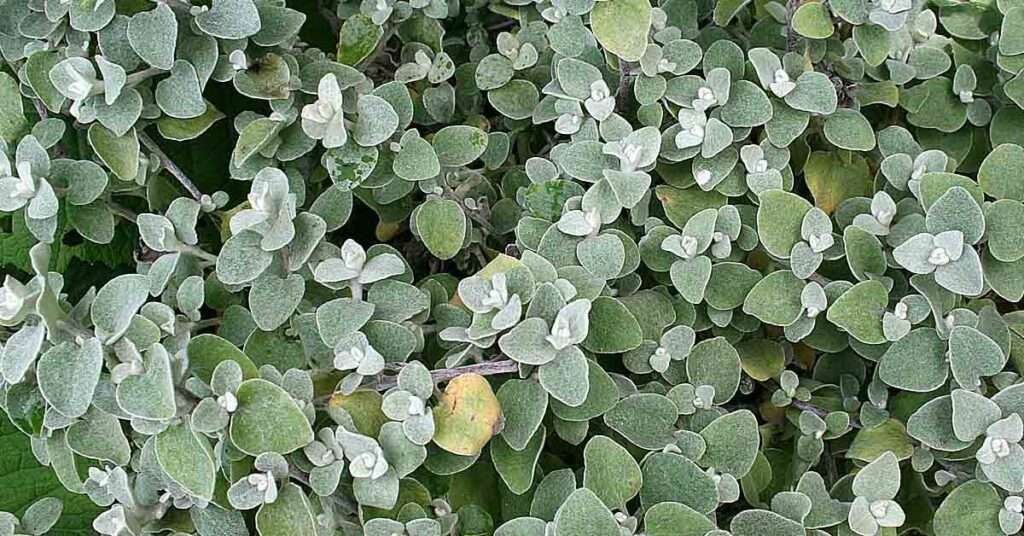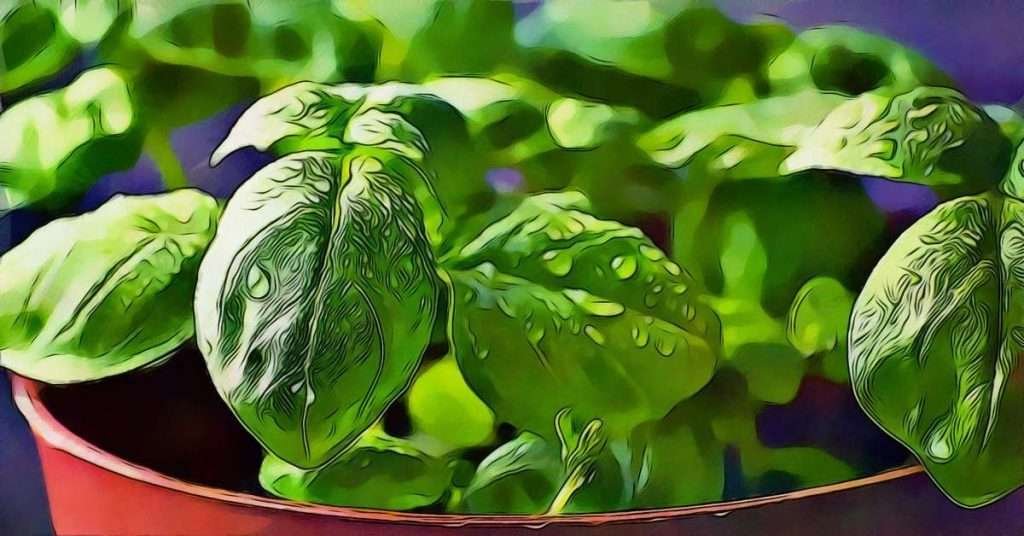What is the best way to grow herbs in a garden?
Herb gardening for beginners can be a fun venture if done right. It helps to have a few strategies “under your belt” before starting a garden.
One of the most common questions that come up is, “How do I make my herb garden successful?”
Knowing how to start an herb garden begins with planning and doing a little research to educate yourself. This will require some forethought on your part.
Tip #1: Have a Purpose For Planting Herbs.

Why do you want to have an herb garden?
This question is the starting point in any gardening venture. Having a valid reason or foundation for a specific gardening quest helps you to be a successful gardener.
An Herb Garden with Purpose
Culinary
Growing your own herbs provides you with a supply of fresh herbs to incorporate into your cooking! Fresh herbs are not only aromatic but add a whole new dimension to the taste of your food.
Medicinal
Specific herbs (alone or combined with others) offer a homeopathic way to treat ailments. We do recommend careful research before self-treating.
Companion Planting
Numerous herbs, when integrated with a flower or vegetable garden, will deter pests. Planting certain herbs alongside vegetables or flowers dramatically benefits the health of your garden.
Personal Interest
Many people plant herbs just because they enjoy it!
Drying
Having an endless supply of dried herbs to cook with and use medicinally prompts many herbal gardeners to dry herbs. Some florists take on the art of growing and drying herbs to compliment floral arrangements.
Essential Oil Production
The essential oil industry has skyrocketed. The health benefits of these oils have piqued the interests of homesteaders and DIY’ers. It’s not uncommon to find a dedicated herb garden grown solely for making essential oils.
Pollinator Cultivation
Beekeepers and many gardeners plant herb gardens to support and attract pollinators. Many fields of lavender are cultivated just for bees!
Tip #2: Select The Appropriate Herbs To Plant.

What are the specific herbs that you’ll be planting?
Now that you know “why” you are planting an herb garden, you should do a little research in selecting your herb plants.
Key things to consider
- Which herbs can be planted together?
- What herbs are easy to grow?
- Will you grow your own herbs in a container or a garden setting?
- Are you going to be growing your herbs from seeds?
Tip #3: Understanding When To Plant The Herbs.
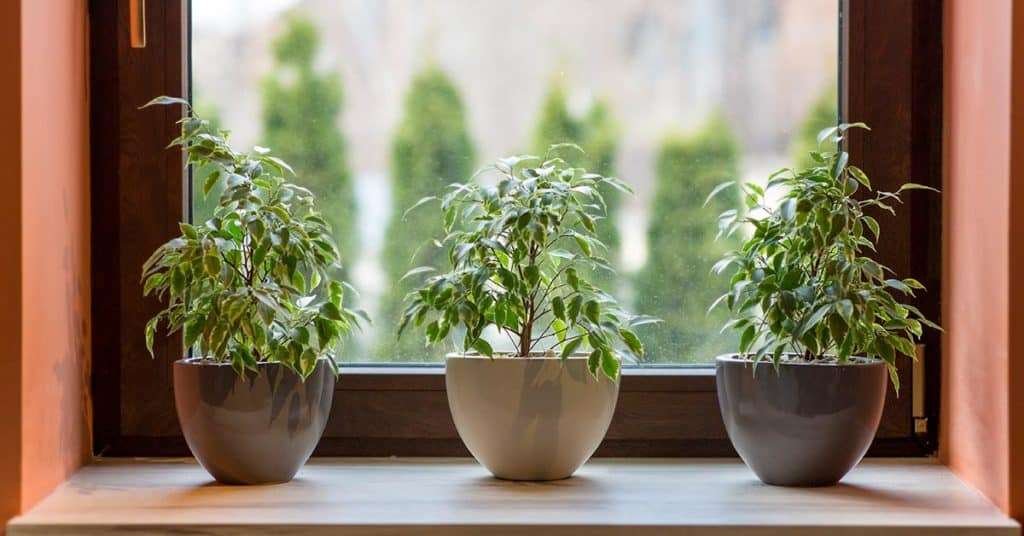
When should I plant my herb garden?
Since you know the “type(s)” of herb plants to get, let’s look at another factor in choosing your herbs.
Categories of Herbs to Consider
Annual Herbs
Annual herbs are planted at the beginning of the season and don’t survive frosts. Herbs that fall into this category include dill, basil, chamomile, and cilantro.
Perennial Herbs
Perennial herbs are planted one time. However, they will regrow every spring. Many herbs are perennial and include lavender, oregano, lemon balm, chives, sage, thyme, and rosemary.
Biennial Herbs
Biennial herbs live for two seasons. Not too many herbs are biennial. Some of these herbs include caraway, watercress, and parsley.
Tip #4: Container Gardening vs. Traditional Gardening.
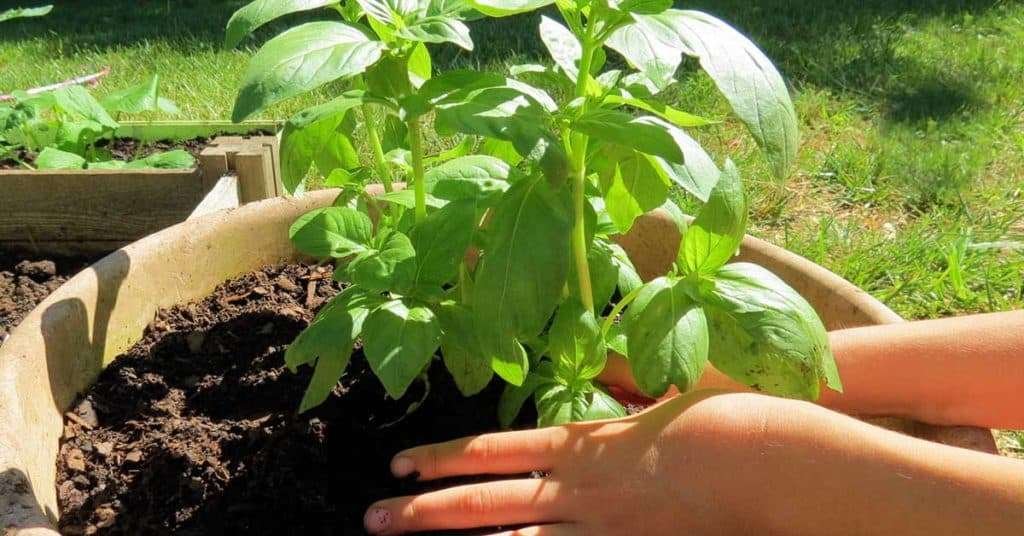
Will you be growing herbs in containers or a regular garden?
Choosing container gardening or traditional/outdoor gardening depends on your access to the outdoors. Most people that opt for container gardening either live in apartments or confined areas. Some homeowners may choose container gardening as a way to enhance a patio area.
For those who have mobility issues and are unable to bend over or kneel, find that elevated containers provide easier access to gardening.
Container Herb Garden
Growing herbs in containers have become a trend. If you are curious about how to start an herb garden in an apartment setting, container gardening will work! An herb garden container doesn’t have to be huge and is quite manageable to maintain.
Make sure that you don’t overcrowd your herbs when planting in a container. Knowing how deep to plant herbs is essential when choosing the right container.
Traditional/Outdoor Herb Garden
If you want to know how to grow herbs outdoors, there are a few things to consider first.
What do you need to start an herb garden?
- Plants that are appropriate for your zone.
- Tools
- A chosen/prepared location for a garden. Remember to consider the plant’s sunlight requirements when selecting your location.
- Treatments such as fertilizer, pesticide, fungicide, etc.
- A commitment of your time to maintain the garden.
Tip #5: Give Your Herbs a Boost!

What helps herbs to grow?
Herbs, like any other plant, need maintenance and care. The worst thing to do is plant it and forget about it! Herb gardens require daily attention. We have listed just a few key things that will give your garden the advantage of being lush and healthy.
Start with good quality soil.
- Containers: use potting soil
- Outdoor gardens: loosen compacted soil and add 1” layer of compost—work compost into the soil.
Watering Do’s and Don’ts
- Water regularly
- Don’t water at night. The best time to water is morning.
- When watering, don’t direct water at the base of the plant. Don’t get the leaves of the plant wet because it can cause diseases.
Don’t overcrowd when planting.
- Place the plants at least 8” apart from one another. This ensures proper air circulation, which prevents disease and unwanted pests.
- Remove decayed and dead debris.
- Allowing dead plant debris to remain on or around the plant causes disease.
Harvest with discretion.
- When snipping parts of the plant off to use in cooking, never snip more than ⅓ of the plant.
Planning is Most Important!
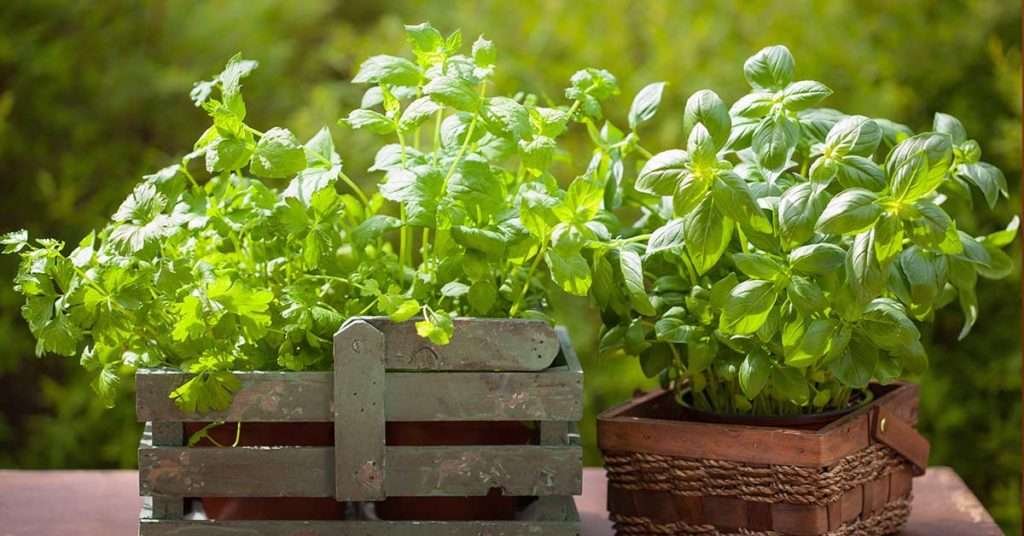
Learning how to start an herb garden can be a rewarding experience. Knowing more about each herb and their uses opens a whole new world of learning.
Herb gardening for beginners and even experienced gardeners requires planning. When you plan ahead, you set yourself and your herb garden up for success!
12 Benefits of Oregano
The smell of pizza is one of the most recognizable and striking scents, and its…
Benefits Of Yarrow
8 Benefits Of Yarrow With its delicate blossoms and storied past, Yarrow has been cherished…
Benefits of Watermelon
Watermelon, a refreshing summer favorite, isn’t just delicious; it’s packed with numerous health benefits. From…
7 Benefits Of Raw Garlic
Garlic, a culinary staple, boasts remarkable health benefits when consumed raw. The humble garlic clove…
9 Benefits Of Basil
Basil, a renowned culinary and medicinal herb, has garnered global acclaim for its exceptional versatility….
Herbs You Can Grow in Water
12 Herbs You Can Grow in Water Italians say that herbs give a dish its…







